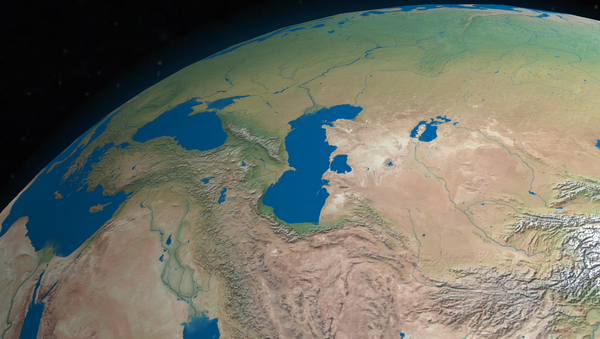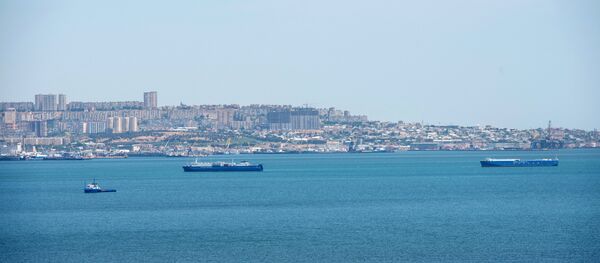Sputnik has discussed the significance of the Caspian Sea Convention with Joaquin Flores, editor in chief of Fortruss news which has closely reported on and broken a number of stories relating to Turkey's geopolitics, energy markets, and its present financial crisis.
Sputnik: Caspian nations agreed a convention on the legal status of the sea. How landmark is this event, considering the latest tensions of Iran, Russia and Turkey with the US?
Joaquin Flores: This is very much linked to the Turkish lira situation, directly. So this agreement really can be termed in many ways. First of all, as an anti-NATO pact with regard to the Caspian, because one of the main factors of this, in terms of military, is that there’s a general agreement now, that there will be no military presence of any country which is not an actual a country with its own natural access; that is on the Caspian Sea.
So that is a huge development, and that’s going to lead toward the rationalization of the TANAP project or the development of the Shah Deniz 2 expansion project, because Azerbaijan's relationship to the Caspian Sea affects everyone and who has claims to what amount of the Caspian Sea is going to be changing our entire precepts of how international relations work.
There is no real need for there to be an either or approach here, and of course, Russia is also able to develop the Turkish Stream project. Now it is Europe that really needs this energy, and doesn’t really produce the energy that it needs in many respects, and at least in terms of keeping price point within the needs for investment and development, we should say.
So if Europe's economies continue to grow it is going to rely on all of these countries working together in defiance of what the transatlantic alliance historically has urged, which is, of course, a decrease in sovereignty of these states, increased foreign military presence in the Caspian, in the Black Sea and so forth, and it has a negative consequence both on sovereignty and on supply line security.
Sputnik: Putin did mention the creation of a Caspian economic forum, what is your outlook for that kind of cooperation between the nations?
It will, of course, create the political framework that gives the assurances required for the different investment consortia to come together; make an agreement with the knowledge that there won’t be foreign market intervention or global market interference primarily from Western financial capital centers into the project.
And I think that this protects it and creates investor confidence within the context of market psychology and will work very well for all Caspian countries including Russia, including Iran and its neighbors.
Views and opinions expressed in this article are those of Joaquin Flores and do not necessarily reflect those of Sputnik.




